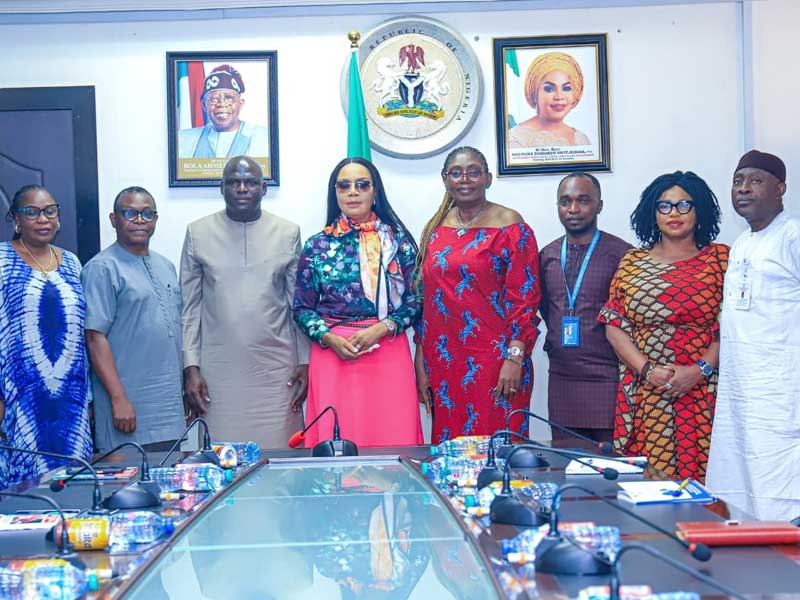The Federal Government of Nigeria has teamed up with the International Labour Organisation (ILO) to strengthen and expand social protection programs across the nation.
The collaborative effort, spearheaded by the Minister of State for Labour and Employment, Nkeiruka Onyejeocha, aims to extend the reach of social safety nets, particularly targeting vulnerable populations and addressing poverty, health challenges, and unemployment.
The partnership, as highlighted by the Director of Press and Public Relations in the ministry, Olajide Oshundun, focuses on key areas such as the expansion of health insurance coverage and support for those engaged in the informal economy.
The ultimate goal is to significantly enhance the impact of social protection initiatives, thereby improving the lives of countless individuals in Nigeria.
Minister Onyejeocha emphasized the importance of social protection for all citizens, stating, “Everybody is entitled to social protection. Citizens need to be reassured of their protection by the government.” She expressed determination to expedite the implementation of vital programs like social security, emphasizing the pivotal role of the Labour Ministry in poverty alleviation and employment generation.
The collaboration addresses challenges identified by the ILO delegation, led by Regional Social Protection Specialist, Dramane Batchabi.
Currently, only 17% of Nigeria’s population benefits from social protection programs, highlighting the urgent need for expansion. Batchabi outlined key obstacles, including the predominance of the informal economy (comprising over 80% of Nigerians) and funding constraints.
Batchabi suggested leveraging the National Social Protection Policy adopted in 2022 and optimizing interventions through the National Social Insurance Trust Fund (NSITF) as strategic measures.
He stressed the importance of coordination, policy analysis, and sustainable funding sources for the success of expanded social protection programs.
The ILO’s commitment to supporting Nigeria’s social protection efforts was reaffirmed by Batchabi, who emphasized the necessity for collaborative efforts in identifying and securing significant financial resources for the successful implementation of these programs.



